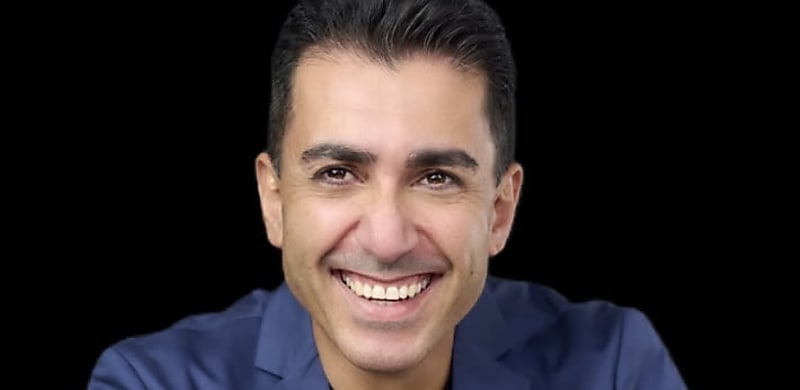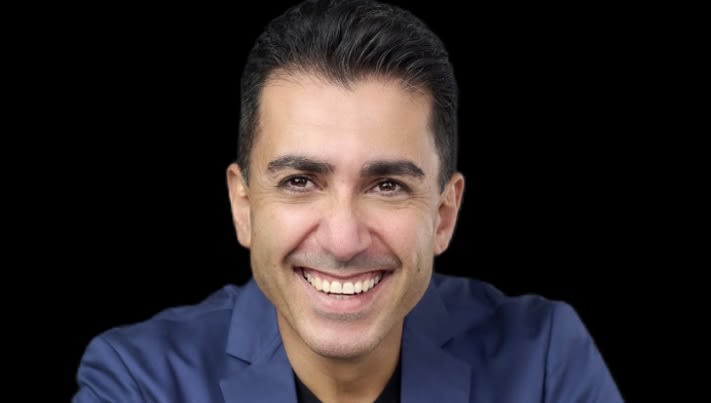
In today’s uncertain, complex, and ambiguously fast-paced world, it’s essential to be able to recharge and remain calm in complexity, says Sleiman "Slayman" Abou-Hamdan.
Regardless of what sector you are working in, you are exposed to the influences of AI, technology, hybrid working environments, and industry disruptions.
Your ability to regularly recharge with good energy and remain calm in complexity enables you to:
- Make strategic and effective decisions,
- Communicate and connect confidently with others, and
- Feel happier and more fulfilled.
More uncertainty, more potential stress, and more opportunities
When we are balanced, motivated and purposeful, we can connect and succeed at unimaginable levels.
But in high stress and complex situations, where we can be impulsive, reactive or in autopilot, anyone could fall into one of three unhelpful behavioural traps:
- Over controlling the situation and becoming emotionally volatile;
- Becoming closed-minded and detaching from others and the situation;
- Becoming overly compliant and accommodating - in turn losing our capacity to be decisive and impactful.
How you show up, and how you act in complex situations will determine how you are perceived by your team, peers, family and friends, and determine the type of impact you will have on them, and how they will remember you.
By recharging, remaining calm in complexity and adversity, we are better able to see the situation for what it is, collaborate with others and form meaningful relationships, and choose a course of action that is likely to lead to a positive result. This is an essential skill for anyone who wants to be successful in today's world.
Recharging is the first step
“Recharge is about creating an internal state of inner balance”
We all have our own unique way of recharging ourselves. Some of us enjoy spending time in nature, while others find that being around loved ones is most replenishing. However, there is one common denominator when it comes to recharge: Inner Balance.
When we can find a sense of calm within ourselves, we are better able to face and grow through the challenges of everyday life.
When we're out of balance, it's impossible to be at our best. When we're in balance, however, we have the potential to tap into our greatest reserves of energy, creativity, and strength. Inner balance is the key to a well-rounded life, and that's what recharge is all about.
Recharge tips
1. Recovery time – Using the learning from sports psychology
One of the ways that we enable ourselves to recharge is to look at the activities in your life and find those that tend to give you more inner balance, in other words: inner calmness.
Here are some tips:
- Go through a mental audit of helpful and healthy recovery activities in your calendar and choose at least one activity that will enable you to recharge throughout the day.
- Engage in internal recoveries such as mini naps and vagal breaths.
- Schedule and participate in external recoveries such as weekend hikes, lunchtime breaks, and vacations.
- Measure your phone usage. Track your time because your time spent shows your current priorities.
- If you want to rest, rest well. Do it properly, and don’t allow technology to rob you from your inner calm.
- Meditate first thing in the morning and last thing before bed.
2. Regulate and wait to act – Using the learning from the military
”Don’t just do something, stand there”
During my Army officer training in Canberra in 2007, I took part in a training called Fighting in Built Up Areas. This involved being in charge of a platoon of soldiers and commanding the situation as it escalated. I was given charge of a platoon of soldiers and was provided a mission update stating that the hostile locals wanted to meet with me to negotiate a prisoner release. I felt the pressure pushing forward into a reactive mode to quickly take the initiative and act. Instead, I chose to take my time, assessed the situation, spoke to my fellow commanders, and approached the situation methodically after proper resourcing. Later on, I found out that this deliberate action prevented me being captured in a trap the red team had devised to capture me as the blue team commander.
Abraham Lincoln was known to do nothing reactively in high-stake moments. His rule was the higher the stakes, the less reactive he was.
So when you are faced with an urgent and important task, always recharge and regulate before you act.
3. Reflect on your experience – using the learning from emotional intelligence
Regularly reflect on what you are feeling, sensing, thinking, because these are the foundations of having good intuition and good decision making, and as a moral and strategic compass.
Emotional intelligence is enhanced through tuning into what you are feeling in the present moment. The basics are sad, mad, worried, and glad, while the more advanced emotional literacy includes many more variations of these.
It is also essential to tune into your body’s somatic and physiological sensations because our stomachs have a nervous system that operates independent of our brains, and also because many past experiences and their associated learnings are stored in the body, therefore giving us a wealth of intuition and cues.
It is also vital to be mindful of what you are thinking and what stories you are telling yourself. Your thoughts become your behaviours, your behaviours become your habits, and your habits become who you are.
4. Stay connected with people who improve your energy – using the learning from interpersonal neuroscience
Authentic social networks and connections are vital. Surround yourself with people who enable you to be vulnerable, honest, and self-express. We are seeing a worrying increase in social disconnection and mental health conditions, which can be vastly improved through creating supportive communities that support people to evolve to be the best versions of themselves.
We need to create the safe and authentic communities for people to thrive, be challenged authentically, and grow together.
5. Get to know your values, strengths and priorities – using the learning from positive psychology
If you take the most reactive step under pressure, you are likely to be unsuccessful. You need to draw on your key strengths, engage and leverage the strengths of those around you, and approach the situation methodically and deliberately. You need to ride the waves and turmoil of fear as if your life depends on it.
Slow is smooth, smooth is fast.
By slowing down, engaging your vagal tone, and being present, you will be better able to understand what the situation requires of you, what your intentions are, what values are most relevant to the situation, how you need to engage with others (courageously and authentically), and then aligning with your values.
Sleiman “Slayman” Abou-Hamdan is a renowned clinical and performance psychologist, professional speaker, trainer, facilitator and coach.
His key focus is on enabling people to feel happier, more productive, more connected, and more successful through training and coaching, available through Slayman.com.au
